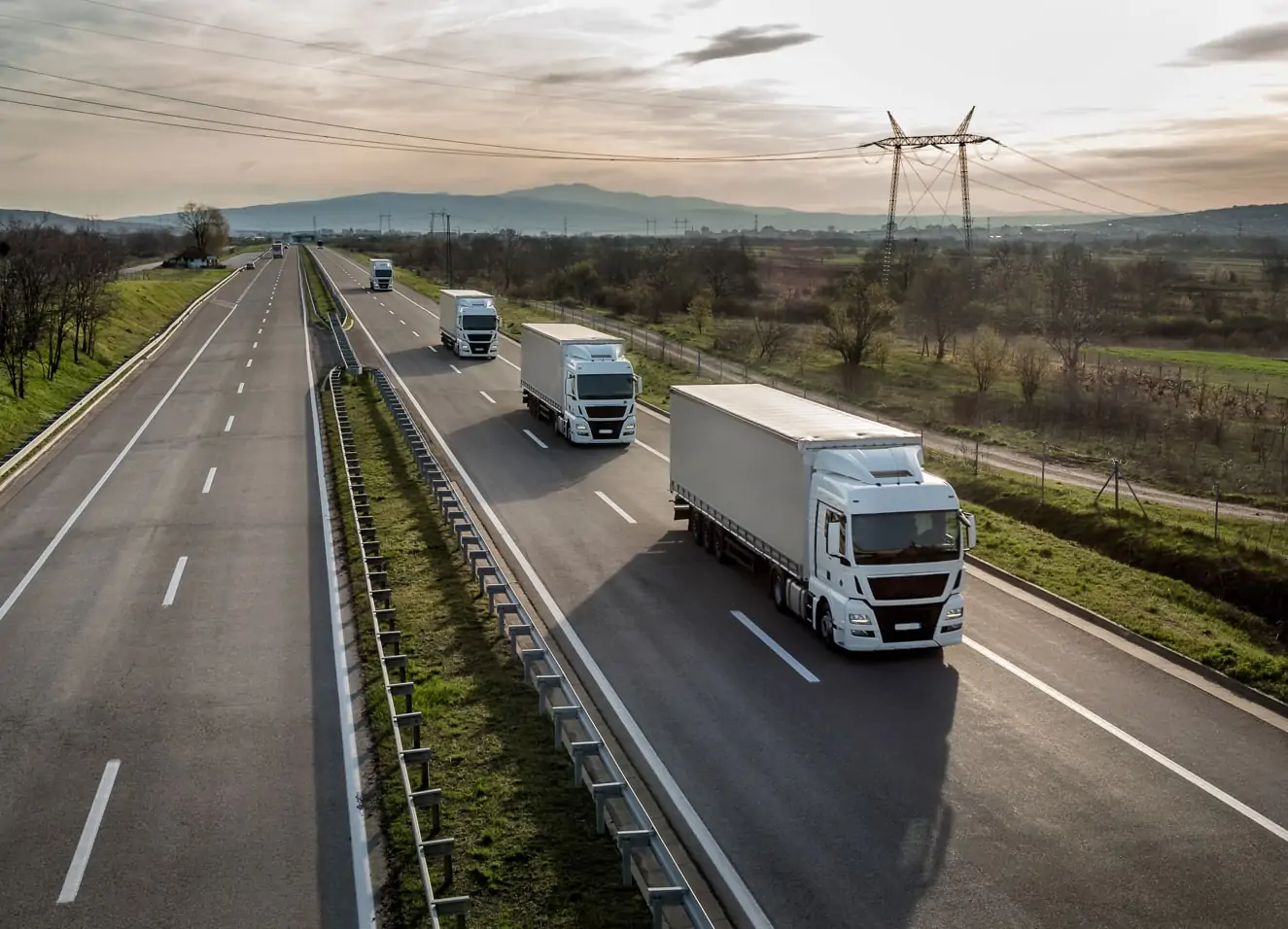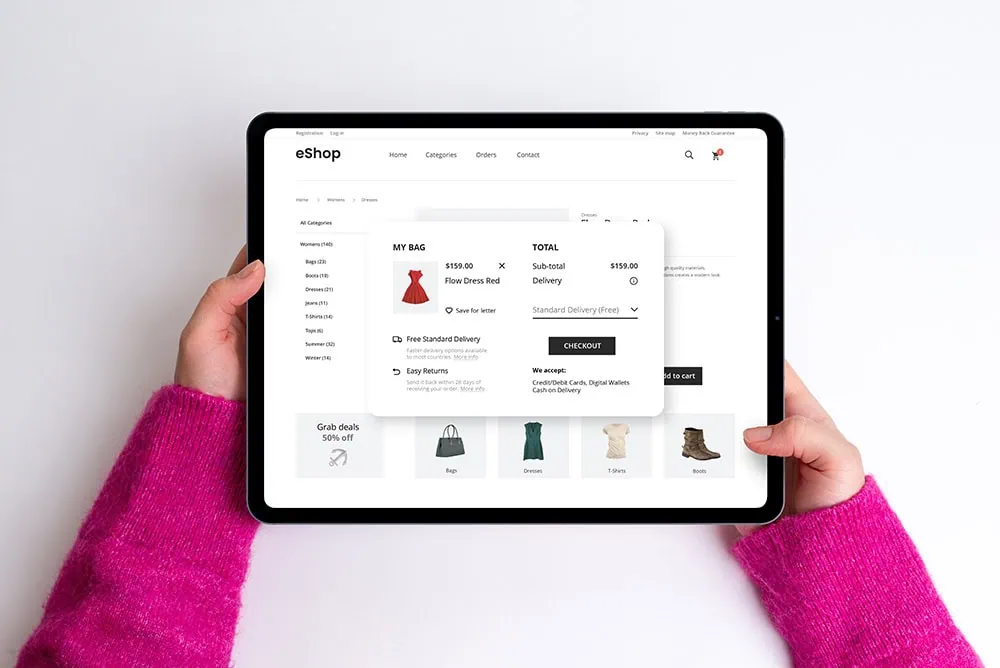
Delivery Services FAQs
Do you have a query about our delivery services? See below a list of our most common questions and answers.
If we haven’t answered your question, please speak to one of our Delivery experts on 0344 264 8000.
Frequently Asked Delivery Questions
What does DDP mean?
DDP, which stands for Delivered Duty Paid, entails comprehensive responsibility on the part of the seller. This encompasses the seller’s obligation to manage shipping, facilitate import clearance, handle taxes, and address duties.
What is DAP?
Delivered-at-place (DAP) is an international trade term where the seller covers costs and risks to transport goods to a designated location. In DAP, the buyer handles import duties and taxes, including local charges, upon the goods’ arrival at the destination.
What is an IOSS number?
An IOSS number is a unique identifier introduced in July 2021 to simplify VAT payments for international shipping within the European Union. With an IOSS number, you can streamline tax payments for goods sold to multiple EU countries, reducing paperwork and allowing for a single monthly VAT return. This eliminates the need for separate forms and payments for each EU country.
What is paperless trade?
With paperless trade, there is no need to print and attach invoices to your shipment. Instead, an electronic invoice is sent through to customs. Currently only available with DHL Express, UPS, Fedex and DPD deliveries, paperless trade has some destination and value restrictions, so if in doubt please contact us for more information.
When does a consignment need to be accompanied by an invoice?
You will need an invoice for any non-document consignment travelling outside the UK. This can be either a pro forma or a commercial invoice. You should attach three copies to the parcel inside a sealed ‘documents enclosed’ wallet. Give a separate copy to your collecting driver, with the carrier tracking number clearly stated on it, unless your shipment is going via Paperless Trade.
What other information is needed on the invoice?
The more information you provide on the invoice the better, as this can help to make customs clearance smoother and quicker. Invoices should always include (as a minimum) full consignee address and contact details, the true value of the goods (‘0’ will not be accepted) and a full description (avoid vague descriptions such as ‘samples’ or ‘gifts’). Additional information, such as country of origin or the shipper’s EORI number, is also useful.
What is a commodity code?
Every product is assigned a commodity code by Customs & Excise, which denotes the level of duty payable to the receiving customs authorities. Codes (and levels of duty) vary by product and may also differ from country to country. It is always best to enter the relevant commodity codes on your invoices. A full list of codes can be found at https://www.gov.uk/trade-tariff
Can I ship to a PO Box address?
Unfortunately, we are unable to deliver to PO Box addresses within the UK. However, we can send to some international destinations, provided you have a contact name and valid telephone number for the receiver. Please contact the ILG Delivery Client Services Team for further information.
What does ‘transit time’ mean?
Transit time is the time it takes for a consignment to be delivered (in working days). If shipped outside the UK, this excludes the time for clearance through the relevant customs processes. Transit times are for guideline purposes and may vary due to remote locations, operational delays or other factors.
What is the maximum weight I can put into a box?
There is no weight limit. However, there may be restricted services for larger shipments, or they may incur surcharges. Please refer to your accessorial charges for the latest surcharges. If you are sending one piece over 70kg, it may be more cost-effective to ship via a freight service instead. Please contact the ILG Freight Team for more information and quotes. If your shipment is over 30kg, the collecting driver will need assistance loading it onto the van.
What is volumetric weight? How do I calculate the dimensional weight of my shipment?
Volumetric weight, also known as dimensional or chargeable weight, is calculated by multiplying the height x width x length (in centimetres) of each parcel within your consignment. Divide this figure by 5000 (if the shipment is going via air courier) or 4000 (if the shipment is going via road). Then round-up the total to the next whole kilogram. If this figure is greater than the actual weight, you will be charged on the dimensional (as opposed to the actual) weight of the consignment.
Can I book a timed delivery in the UK?
Yes, we offer a wide range of specialist timed services, including a pre-09.00, pre-10.30 or pre-noon delivery and a dedicated same-day option upon request. Please refer to the online booking portal for timed services or contact the ILG team for a quote on more specialised requirements.
How do I track and trace my shipment?
Unless your consignment is going via a Global Mail service or Global Freight Forwarding network, you will be assigned a tracking number which is linked to your shipment. You can follow updates on your online portal and click through from there to the carrier’s own tracking site. Your online portal also allows you to run dispatch reports and view any outstanding shipments. If you have any questions about tracking your order, please contact the ILG Customer Service Team.
How much will my shipment cost?
The cost of delivery depends on the size and weight of your shipment, its destination and when you want it to arrive. Obtain a quote online by logging into your account and entering this information. You can do this for shipments from your address, as well as imports and shipments from another UK address. Please be aware that surcharges may be applied in certain circumstances. You can save your quotes, and confirm them later, before proceeding with the booking. Please check your accessorial charges or confirm with a member of the ILG team.
Read our latest delivery and fulfilment insights >
A Guide to UK Market Entry for Canadian Brands
Canada’s traditional export routes have been radically changed recently and the UK market could be a good alternative to the US. Read our guide to UK market entry.
Battling E-Commerce Basket Abandonment in a Zero-Tolerance Era
In today’s volatile retail landscape, UK retailers are losing a staggering £34.4 billion annually to e-commerce basket abandonment. Find out how to tackle it here.

